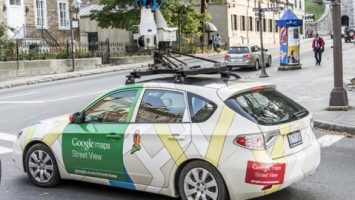
Gilbert, Arizona wanted to reach the community, so they built Alex. The open data avatar sets a standard for community engagement, and that’s why we named it one of the 2019 Smart 50 Award recipients. Learn more about the project below from an interview between Managing Editor Laura Benold and the City of Gilbert’s Chief Digital Officer Dana Berchman.
LB: Tell me about your project and where it began.
DB: We engaged with Michael Bloomberg’s What Works Cities program to create an Open Data Portal. We looked around at other cities who had portals and realized that they were creating them in the name of transparency but not many cities were truly using them to their full capabilities. We set out to create an interactive, outward facing persona, “Alex”, who would be our data librarian and would help guide people through the process of using our data and portal. Her full name, Alexandria, came from the Ancient Library of Alexandria, one of the largest and most significant libraries of the ancient world. When you visit our Open Data Portal, Alex gives you information and shows trends and statistics about community safety, growth and development, recreation and culture, finance and operations, and transportation and facilities using Gilbert, Arizona’s real data. Alex is improving civic engagement and helping residents connect the dots to make government more accessible; improving interactions with residents and businesses.
LB: The residents of Gilbert clearly wanted something like Alex, given the traffic it saw in the first six months. What did that traffic (visits and views) result in, and how have they improved overall interaction with city government?
DB: Initial traffic to the Open Data Portal and Alex resulted in suggestions for additional data sets, suggestions for additional stories explaining how town data was being used, and also some partnerships with various internal departments and external groups. In addition to opening up new opportunities between the town and local school districts, new and existing businesses, and residents, the insight we received gave us additional ways to focus our outreach efforts to engage residents and introduce them to other programs from the town. For example, our analytics from the Open Data effort resulted in a joint project to increase awareness of our Gilbert 311 public service request program. Residents were submitting questions regarding town services and so we created a Holiday Lights program where residents could submit holiday light displays through our 311 platform, and that data was collected and displayed on our Open Data Portal. By submitting a light display, residents were being introduced to the citizen reporting platform in a positive way and being motivated to learn and use the new system. Additionally, data that we receive from the Open Data Portal helps with the prioritization of new data sets that are being prepared for publication.
LB: Why did Alex become a priority for the Gilbert city government, and how did you navigate to make it happen?
DB: Alex became a priority for Gilbert as a result of our desire to be as transparent as possible with our residents and to increase engagement with a number of stakeholders, including residents and the local business and educational communities. The long-term vision for Gilbert is to be the city of the future where residents are aware of how their tax dollars are being used and where we are supporting our decisions and actions with data and evidence, whenever possible. In order to ensure that our program was as successful as possible, we worked with other cities nationally through the What Works Cities program, with local cities in a joint data collective (the AZ Data Collective), and with an internal Open Data Committee to both develop the procedures and workflows needed to publish data but also to develop best practices and guidance for everyone in the organization. We continue to grow and expand the Open Data initiative and to give Alex new ways to connect the dots for residents but also to help residents and stakeholders understand what data is available and how it is being used, both internally and externally.
LB: What have you learned since starting the project that you wish you knew at the beginning? How would it have changed the outcome of the project?
DB: I wish that I had known exactly how much data was out there that wasn’t considered “data”. When we started our Open Data initiative, we created a data inventory of all the data that we knew existed in our organization in all departments. We then surveyed each department and identified data owners and prioritized data sets for release based on input from these data owners and our Open Data Leadership team. As conversations have continued to evolve, I’ve learned that there is a wealth of data that’s being used by departments that’s being entered manually or stored in spreadsheets and so the people using the data daily aren’t looking at is as “data”. They’re just looking at it as information that they’re using to do their jobs. As I’m working with various data owners, I’m starting to see that there is a lot of opportunity to both help them improve the way they’re currently working and make this data available to our Open Data program.
LB: How did you achieve adoption of your platform in Gilbert? Did you try tactics along the way that didn’t work before you arrived at those that did?
DB: We used Alex to truly make the Open Data platform something that was relatable, use-able and understandable to the average resident or business. This has been key to the success and use of our Open Data Portal. We used all of our digital tools to reach our residents online to promote the platform. We also created a “how-to” video that walks users through how to best navigate the Open Data Portal.
LB: You recently received a Smart 50 Award for this project. What does that mean to you?
DB: We are thrilled to be recognized for the success of our Open Data Portal and the creation of our Open Data Librarian Alex. We truly believe in the outward-facing portion of this project and the importance of creating something that all residents and businesses can understand and engage with. Too often, projects like these get lost in IT departments where they don’t understand the marketing aspect and how to create platforms that people will truly want to use. We wanted to be sure that the data is being used to improve lives and make decisions. It’s an honor to be recognized for doing just that.


